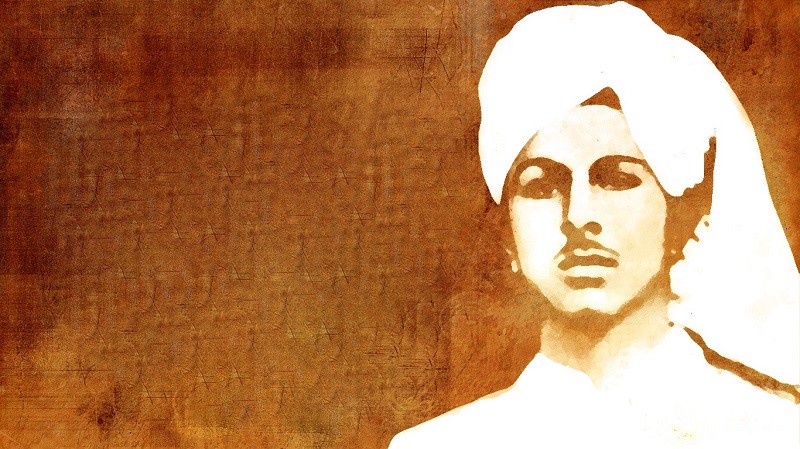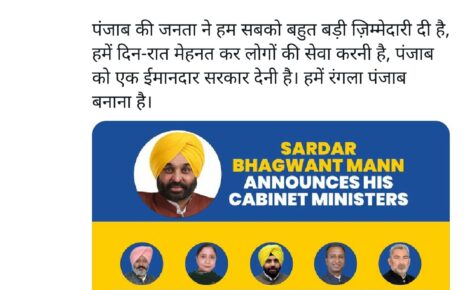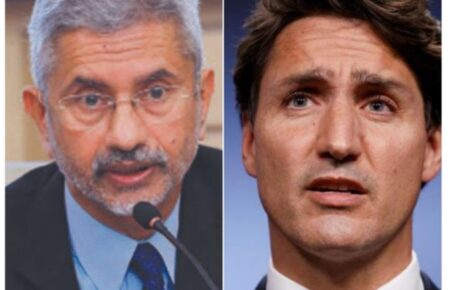“Zindagi to apne damm par hi jiyi jati hey..dusro k kandhe par tohh shirf janaje uthaye jate hey.” (Life is lived on one’s own terms. Only the dead are carried on others’ shoulders.)
Bhagat Singh, a Sandhu Jat, was born on this day in September 1907 to a Sikh family in Banga village, Jaranwala Tehsil in Lyallpur district of the Punjab Province of British India (now in Pakistan).
A young intellectual, who was acutely aware of the political current and ideologies of his time, he did not hesitate to speak out his mind. His name is synonymous with the revolutionary movement and gave his life for the country when he was sentenced to death by execution at the ripe age of 23, in Lahore, along with his associates Rajguru and Sukhdev.
Due to his influence, the Britishers hanged Bhagat Singh an hour ahead of the official time. On March 23, 1931, he was hanged at 7.30pm, and secretly cremated on the banks of the Sutlej River by the jail authorities. However, on hearing the news of his execution, thousands of people gathered at the spot of his cremation and took out a procession with his ashes.
Here are some facts from his life:
Born in a politically active family, his grandfather did not approve of the Khalsa High School in Lahore and showed his loyalty to the British government. Due to this, Bhagat Singh did not attend it and got enrolled in an Arya Samaj school.
He quit school at thirteen to devote his life to Indian Independence and is popularly known as Shaheed-e-Azam Bhagat Singh.
In his childhood, Bhagat Singh always spoke about growing guns in the field to drive out British from India. He was 12-years-old when the Jalianwala Bagh incident occurred. He bunked school and went straight to the place of the tragedy. There, he collected the mud of that place which was mixed with the blood of Indians and worshipped the bottle every day.
When he was 14, Bhagat Singh took part in a protest against the killing of a large number of unarmed people at Gurudwara Nankana Sahib.
He was a great actor in college and took part in several plays such as ‘Rana Pratap’, ‘Samrat Chandragupta’ and ‘Bharata-durdasha’.
Bhagat Singh ran away to Kanpur when his parents wanted him to get married. He told them that if he married in colonial India, “my bride shall only be death” and joined Hindustan Socialist Republican Association.
He was an avid reader and was attracted to the socialist ideas of Lenin, Karl Marx and Leon Trotsky. He was greatly inspired by the Bolshevik Revolution and Charles Dickens, Lenin and Maxim Gorky were among his favourite authors.
‘They may kill me, but not my ideas. They can crush my body, but will not be able to crush my spirit’.
Bhagat Singh coined a powerful slogan ‘Inquilab Zindabad’ which became the slogan of India’s armed struggle.
He along with Sukhdev planned to avenge the death of Lala Lajpat Rai and plotted to kill the Superintendent of Police James Scott in Lahore. However, in a case of mistaken identity, John Saunders, the Assistant Superintendent of Police was shot.
Although a Sikh by birth, he shaved his beard and cut his hair to avoid being recognised and arrested for the killing. He managed to escape from Lahore to Calcutta.
Singh and his associates threw low-grade explosives in the Central Legislative Assembly, not with the intention to injure anyone, but for them to be arrested, so they could go public with their cause.
He had fasted for 116 days in jail and surprisingly, he used to do all his work regularly, such as singing, reading writing books, visiting court every day, etc, during that period.
His two primary demands in jail were that books and newspapers should be made available to all political prisoners. Some of his well-wishers in Lahore ensured that he got a good supply of books in jail.
Bhagat Singh had told the British that ‘instead of hanging, they should shoot him’, but the Britishers did not consider it. He mentioned this in his last letter, “As I was arrested during the war, I cannot be punished by hanging. Let me be thrown into the mouth of a cannon.”
On the day of his hanging, his mother came to visit him in jail. Seeing his mother, Bhagat Singh started laughing loudly. The jail officials were stunned to see how a person was who so close to death, laughing openly.
It is said that Bhagat Singh was smiling when he was hanged. In fact, this was done with fearlessness to ‘lower the British imperialism’. It is also said that no magistrate was ready to monitor Bhagat Singh’s execution. After the deadline of the original death warrant, an honorary judge signed the execution order and inspected it.
He was a prolific writer and contributed to many newspapers of the time. He wrote around four books while in prison alone, although besides his diary, nothing else survives.
Among his famous prison writings was a pamphlet titled ‘Why I am an Atheist’. In it, he wrote: “For some time I was afraid that some day I also might not be convinced of the futility of our own programme. That was a turning point in my revolutionary career. ‘Study’ was the cry that reverberated in the corridors of my mind. Study to enable yourself with arguments in favour of your cult. I began to study. My previous faith and convictions underwent methods alone which was so prominent amongst our predecessors, was replaced by serious ideas. No more mysticism, no more blind faith. Realism became our cult.” A month before he was hanged, he wrote in a letter addressed ‘To Young Political Workers’: “Be prepared to face the facts. Revolution is a very difficult task. It is beyond the power of any man to make a revolution. Neither can it be brought about on any appointed date. It is brought can it be brought about on an appointed date. It is brought about by special environments, social and economic… And to prepare the masses and organize the forces for the revolution is a very difficult task. And that required a very great sacrifice on the part of the revolutionary workers.”




